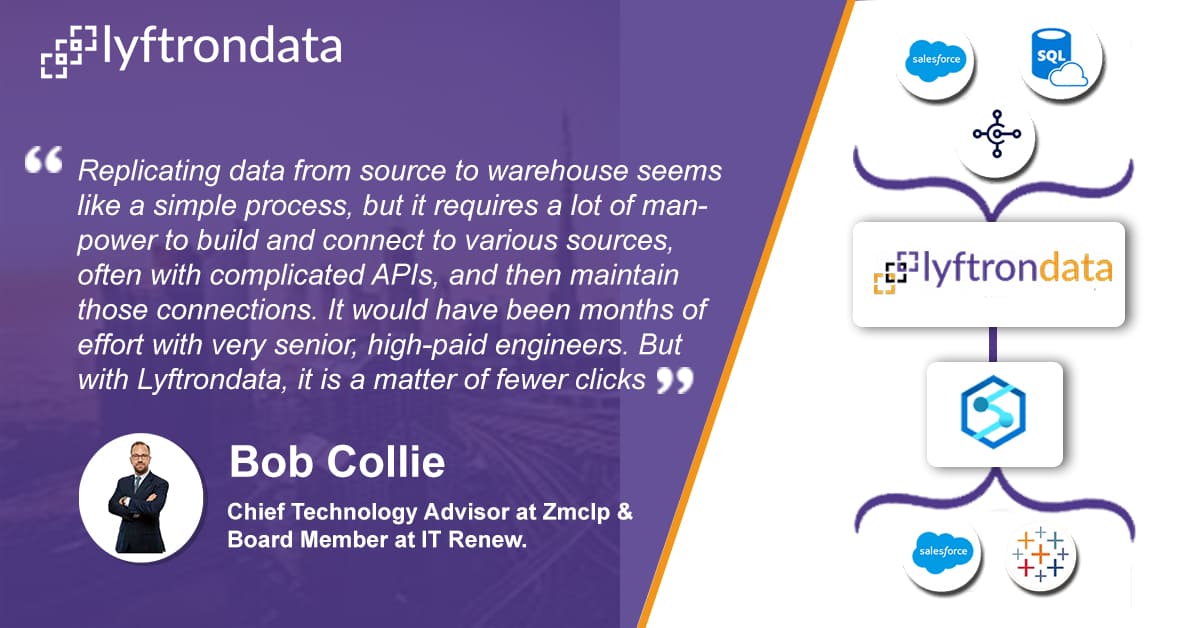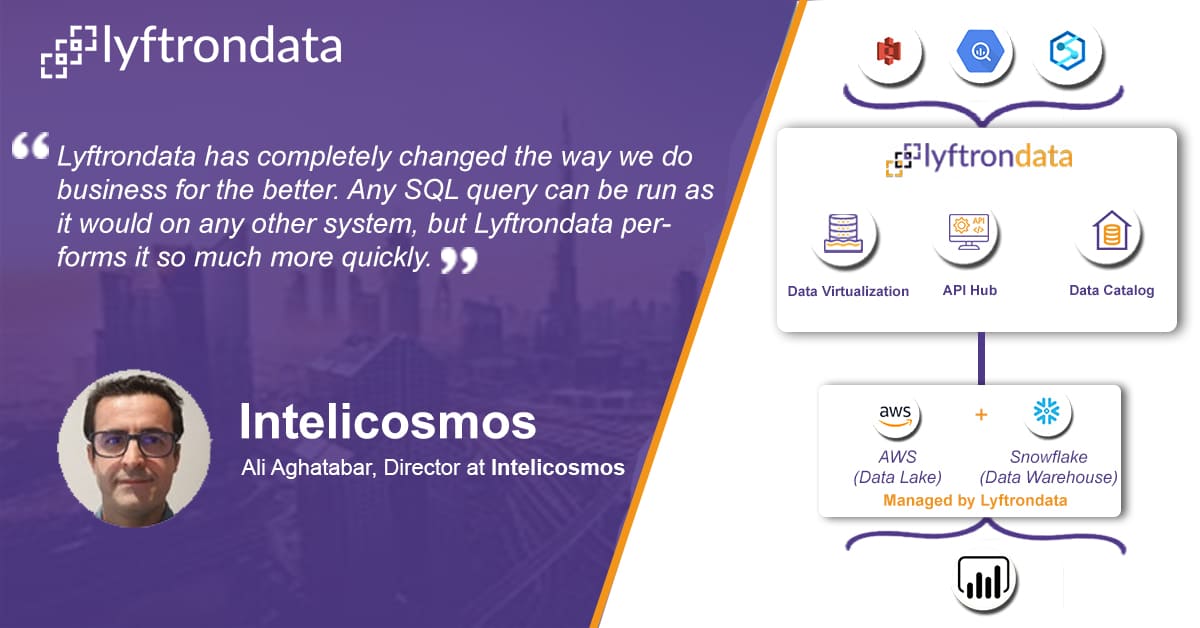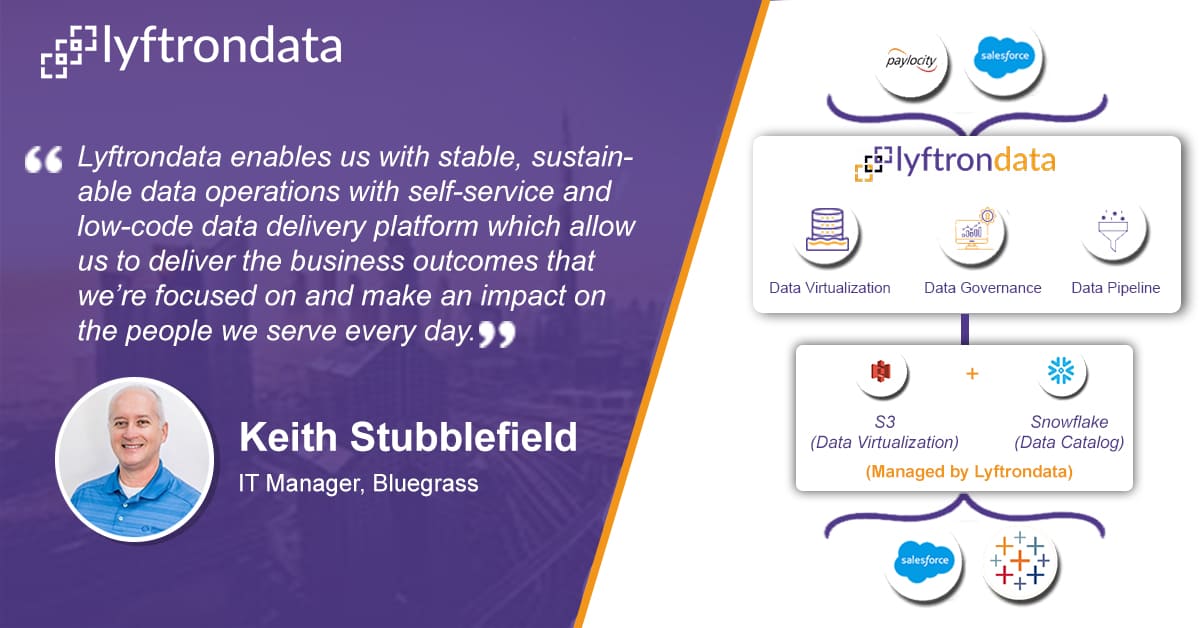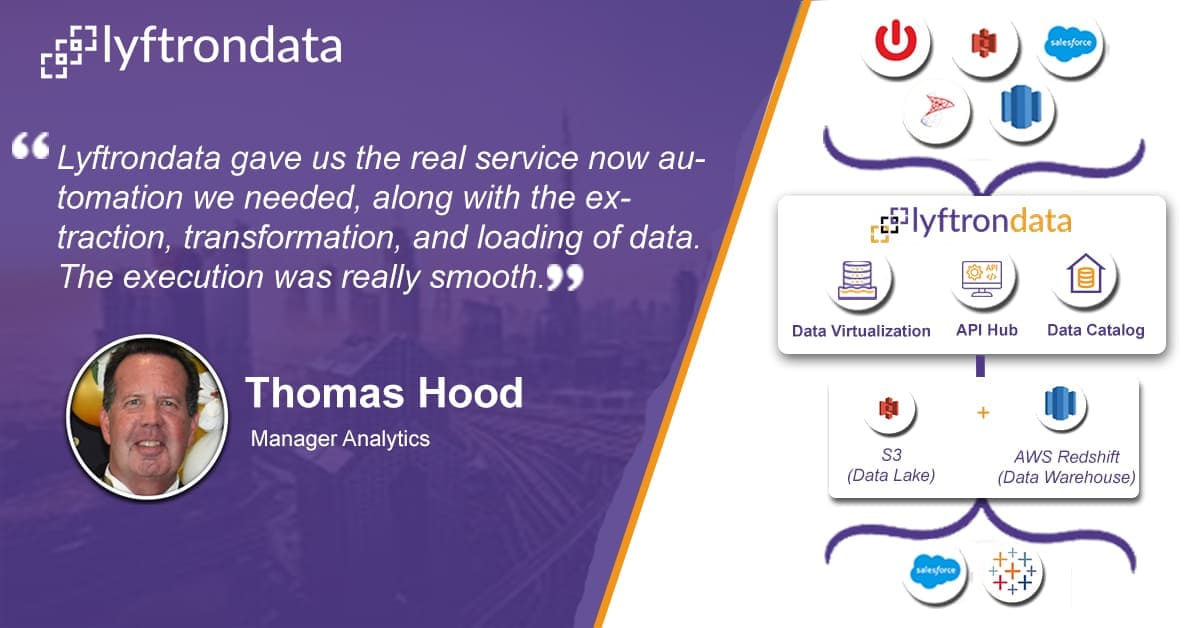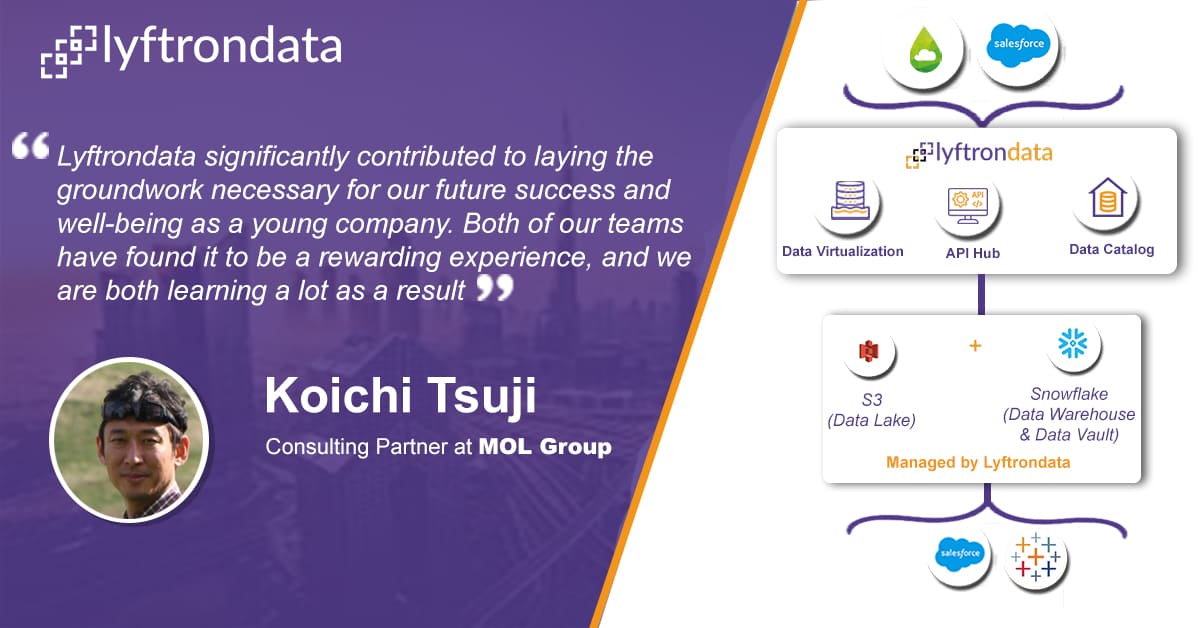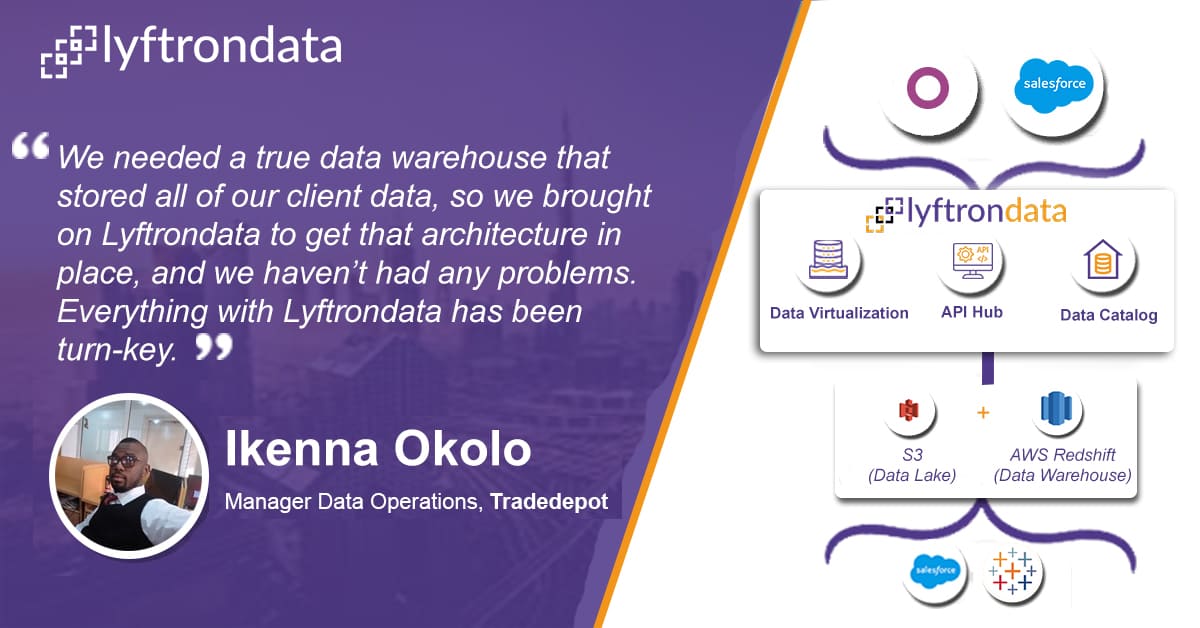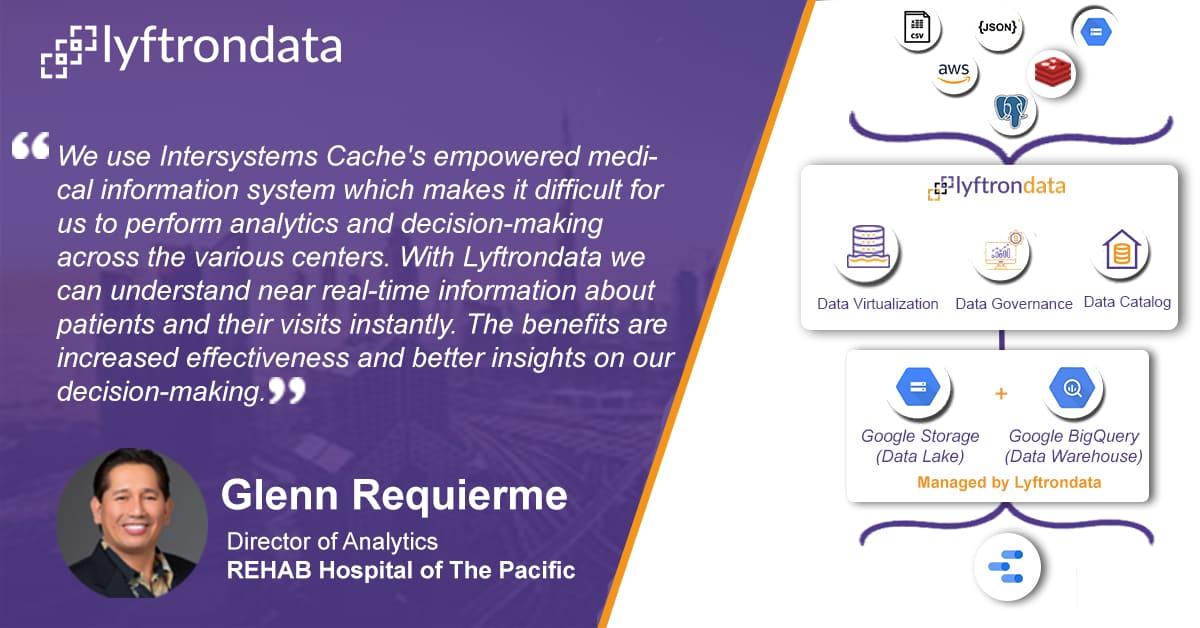200X Acceleration at
1/10th of the cost
Zero
maintenance
No credit card
required
Zero coding
infrastructure
Multi-level
security
Simplify SQ ream DB integration in
4 simple steps
Create connections
between SQ ream DB and targets.
Prepare pipeline
between SQ ream DB and targets by selecting tables in bulk.
Create a workflow
and schedule it to kickstart the migration.
Share your data
with third-party platforms over API Hub
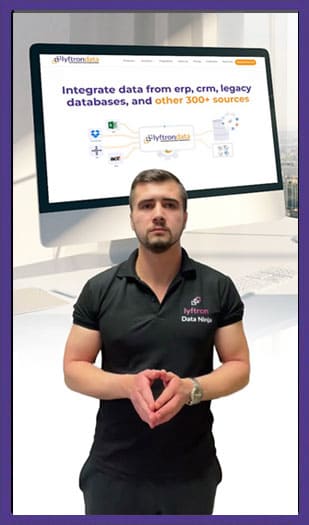
Why choose Lyftrondata for SQ ream DB Integration?
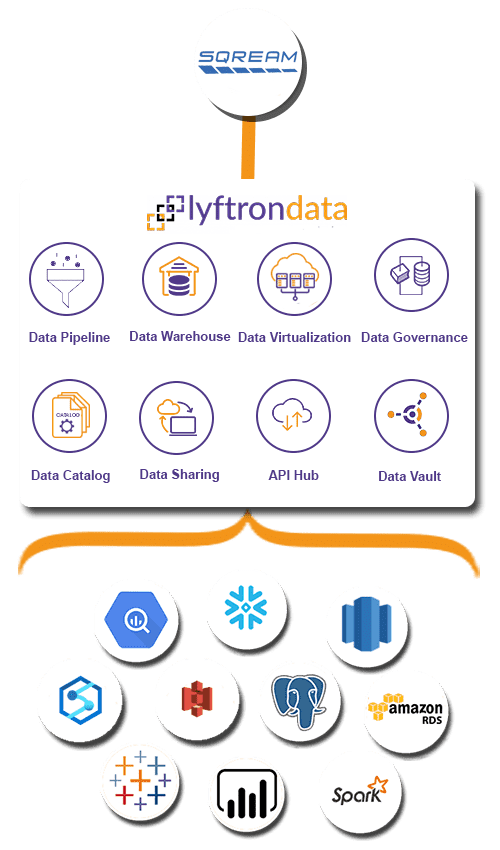

Simplicity
Build your SQ ream DB pipeline and experience unparalleled data performance with zero training.

Robust Security
Load your SQ ream DB data to targets with end-to-end encryption and security.

Accelerated ROI
Rely on the cost-effective environment to ensure your drive maximum ROI.

Customer's Metrics
Track the engagement of your customers across different channels like email, website, chat, and more.

Improved Productivity
Measure the performance of your team and highlight areas of improvement.

360-degree Customer View
Join different data touch points and deliver personalized customer experience.
Hassle-free SQ ream DB integration to the platforms of your choice
Migrate your SQ ream DB data to the leading cloud data warehouses, BI tools, databases or Machine Learning platforms without writing any code.
Hear how Lyftrondata helped accelerate the data journey of our customers
FAQs
What is SQ ream DB?
It seems like you're asking about Realm DB, a mobile-first database management system often referred to as Realm. Realm is designed specifically for mobile applications, providing a fast, lightweight, and easy-to-use solution for storing and managing data directly on mobile devices. It has gained popularity for its simplicity and performance, especially in mobile development environments like Android and iOS.
What are the features of SQ ream DB?
High Performance:
Realm DB is known for its high performance, with fast reads and writes, low memory consumption, and an efficient core designed for mobile. It often outperforms SQLite in mobile environments due to its object-oriented nature and lack of SQL query overhead.
Cross-Platform:
Realm supports multiple platforms, including Android, iOS, React Native, Xamarin, and more. This makes it easier to use the same database in cross-platform apps with consistent performance.
Zero Copy Architecture:
Realm uses a "zero-copy" architecture, where the database interacts directly with in-memory data. This minimizes data duplication and reduces memory usage, improving performance on mobile devices.
Thread Safety:
Realm databases are designed to be thread-safe, meaning you can access and manipulate your data across multiple threads without the risk of corruption or crashes, which is crucial in mobile app development.
What are the shortcomings of SQ ream DB?
Complex Query Optimization:
Manual Tuning Required: Although SQream DB is designed for high-performance querying, in some cases, manual query optimization or tuning is required to achieve the best performance. Developers or DBAs may need to adjust queries or configurations to ensure that GPU resources are utilized effectively.
Complexity in Parallelism: SQream's ability to parallelize queries across multiple GPUs or nodes can sometimes be tricky to manage, especially for non-expert users. Poorly optimized queries or resource allocation could negate the benefits of parallel processing.
Limited Advanced Analytics Features:
Fewer Built-In Analytics Functions: While SQream DB excels at handling large datasets and executing complex queries quickly, it may lack some of the advanced analytics features found in other platforms, such as built-in machine learning models or advanced geospatial analytics.
Focus on Big Data Processing: SQream DB is optimized for processing very large datasets but may not be ideal for more nuanced, smaller-scale analytics operations that other databases handle more efficiently.
Scalability Beyond GPU Capabilities:
GPU Bottleneck: While GPUs provide excellent acceleration for parallel data processing, they can become a bottleneck if not managed properly. For example, certain operations or very complex queries may hit the limitations of GPU memory or processing power, leading to performance degradation.
Cluster Scaling: Scaling GPU clusters can be more complex and expensive compared to scaling traditional CPU-based clusters, particularly in cloud environments where GPU resources can be costly and less flexible.
Make smarter decisions and grow your sales with Lyftrondata SQ ream DB integration





